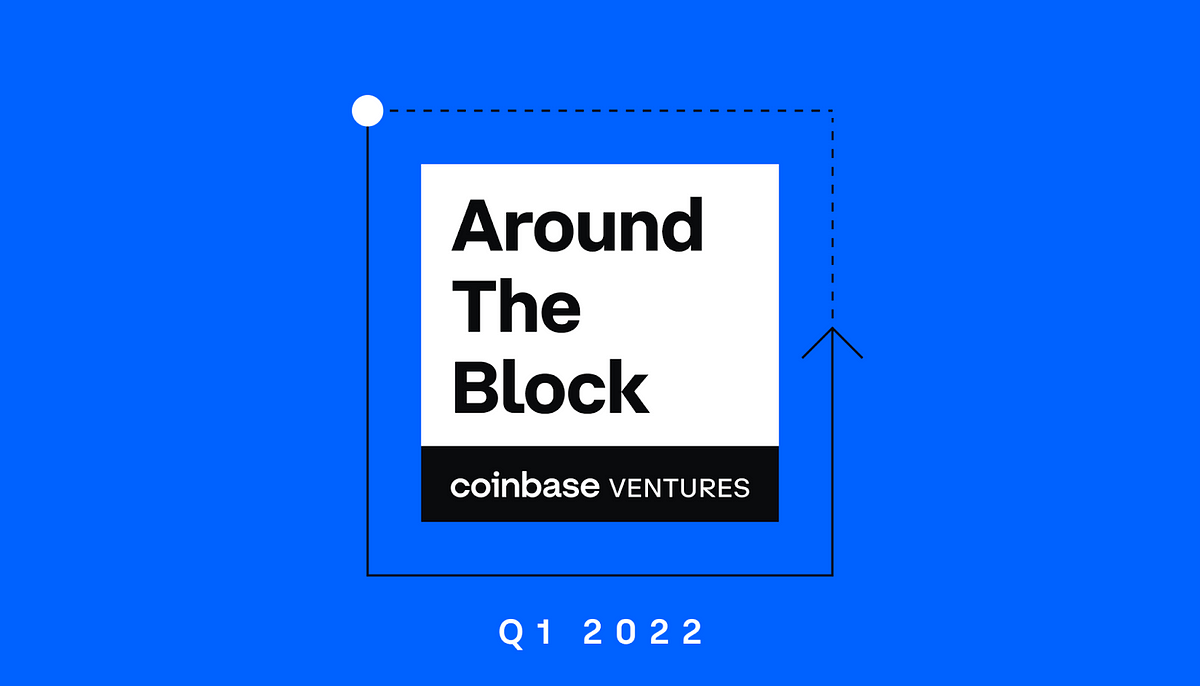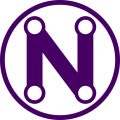After peaking in November 2021, liquid crypto markets fell into the new year and more or less treaded water in Q1. The private markets, however, kept up the torrid pace set last year.
According to data from The Block, Q1 2022 saw a record of $12.5 billion in venture funding — a figure that has increased for seven consecutive quarters. Coinbase Ventures was busy as well, closing 71 new deals in Q1, generally targeting early stage investments. We will note that we’re starting to see signs of a slow down, particularly with later stage investments, that will likely be visible in our Q2 activity.
Deal volume is a reflection of the continued influx of new companies and projects being formed in the space. This is aided by the low startup costs that crypto & Web3 companies enjoy thanks to open-source code and the ability to bootstrap or self-fund via token issuance.
CBV overview
As a refresh:
- Coinbase Ventures advances crypto & Web3 by partnering with exceptional founders who share Coinbase’s mission of creating more economic freedom for the world.
- We’ve been recognized as one of the most active corporate VCs in the world by deal count.
- Ventures partners with founding teams at the earliest stages and throughout their journey. We invest across all categories within the cryptoeconomy, seeking to align ourselves with the best and brightest minds in the space.
- To date, we’ve invested in 300+ teams building everything from layer 1 protocols, Web3 infrastructure, centralized on-ramps, decentralized finance, NFTs, metaverse technologies, developer tooling, and more.
We generally break down our investments across six categories. Within these six categories, here’s how our activity shook out in Q1 ‘22.
Given that we invest in projects in their infancy, our activity can offer a lens into what the industry has in store in the near future. With that, let’s dive into some of the trends and themes that we identified in Q1.
Cross-chain & Web3 infrastructure bloom
In the early days of crypto, Bitcoin and Ethereum dominated. With new layer 1s coming online in recent years, ecosystems outside of BTC/ETH have exploded, and there are now more than 10 chains hosting over $1B in value.
The growing value across multiple networks has brought an increasing need for value on one chain to flow to another. As such, we’re continuing to see cross-chain infrastructure being built out to facilitate activity between blockchains (CBV Q1 investments: LayerZero, ZK Link, LiFi, Foxchain, Socket, Composable Finance).
Even with the multi-chain future assured, we’re still seeing new experimental layer 1s in development. Our investments in Aptos (general purpose L1 from former Diem employees), Celestia (modular blockchains), and Subspace (Proof-of-Archival consensus) suggest that the industry is not done innovating at the base layer. It also begs the question — will the dominant layer 1s of today someday be usurped? Time will tell.
Further up the stack, there’s more tooling on the way to help DAOs and Web3 communities flourish. Solutions for payroll (Diagonal, Zebec), social engagement & networking (Taki, Backdrop, Bonfire), and commerce (Rain) all point to a future where these online communities can coordinate more seamlessly.
DeFi’s multi-chain proliferation
Speaking of the multi-chain world, we’re seeing familiar patterns emerge across these burgeoning layer 1 networks. Basically, Ethereum set the tone for the foundational apps and protocols needed for an ecosystem to thrive: an AMM (Uniswap), money markets (Compound/Aave), an oracle (Chainlink), and yield aggregators (Yearn.Finance) to name a few.
For an emerging layer 1 to compete, teams understand they’ll need those same foundational primitives. As such, it’s becoming common to see Ethereum’s DeFi building blocks replicated across layer 1s like Solana, Avalanche, NEAR, Polkadot, etc. Betting on these foundational protocols is a good way to gain exposure to a broader ecosystem: a playbook we followed in Q1.
For example, from our Q1 investments, Aurigami on NEAR and Solend on Solana resemble Compound. Katana and Francium on Solana resemble Yearn.finance. Redstone resembles Chainlink, leveraging Arweave for cheaper storage to offer oracle services to longer tail tokens and NFT data feeds. And while these projects resemble apps first created on Ethereum, they’re each innovating in unique and differentiated ways.
Polkadot Cometh
Elsewhere in DeFiland, we were particularly active in the Polkadot ecosystem in Q1. With the long-awaited launch of Polkadot parachains arriving at the end of 2021, we’re seeing momentum around DOT pickup steam.
You can think of Polkadot as a network that you can launch layer 1s on top of. Each of these layer 1s, called parachains, are capable of interoperating with one another. With parachains live, Polkadot is now capable of hosting user applications.
We’ve now invested in 4 of the 5 live parachains (Acala, Moonbeam, Parallel Finance, and Astar) and waded deeper into the DOT waters in Q1 with investments in Composable Finance, Satori, and Coinbase alum Luke Youngblood’s new project: Moonwell.
NFT expansion pack
After a breakout summer, NFT sales have come back down to earth a bit from their earlier highs. Below the surface, however, innovation is more vibrant than ever.
Where NFT activity in 2021 centered around simple buying and selling (aka flippin’ JPEGs), the next wave of projects are building utility around NFTs. NiftyApes and PawnFi, for example, are working to bring liquidity to NFT holders by letting them take out loans collateralized by their NFTs. Platforms like Cymbal aim to bring more community and social features around NFT ownership.
Yuga Labs, the studio behind Bored Ape Yacht Club, made waves this quarter by raising at a $4B valuation to build a BAYC branded metaverse. Next, they acquired the IP rights to NFT collections CryptoPunks and Meebits. They capped it off by announcing a movie trilogy (produced by Coinbase) where BAYC NFT holders can submit their NFTs to be cast in the films and get paid a licensing fee — an interesting new experiment with on-chain licensing.
GameFi 2.0
Blockchain based gaming had its coming out party in 2021 centered around the rise of Axie Infinity. Sales of Axie Infinity NFTs peaked at a staggering $848M in August before falling precipitously. (Note that despite the obvious trend reversal and a major hack, Axie still posted a respectable $30M in March NFT sales).
Axie’s multi-billion dollar run was enough to put the entire gaming world on notice and the next wave of blockchain based games have been quietly raising ever since. Notably, many of the teams raising have track records building highly successful mobile, web, and AAA games (Clockwork Labs, Block Tackle, Summoners Arena, Third Time, Avalon).
The blockchain based games of the future will infuse crypto NFTs into more familiar Web2 gaming formats — MMORPGs, FPS, MOBA etc. Other CBV portfolio companies like Joyride will make it easier for game devs to integrate crypto/NFTs into existing titles.
At present, South East Asia is establishing itself as the center of the crypto-gaming world, led by the Philippines and Vietnam, among others. We’re particularly excited by developments in this region and the progress of Vietnamese based gaming guild and CBV portfolio company Ancient8.
Ventures outlook
Amidst a shaky macro picture, many crypto investors are on edge. More frequently, we’re getting asked how the market downturn will affect CB Ventures’ activity. To date, there’s no shortage of high quality entrepreneurs building in crypto and Web3. It isn’t however unreasonable to expect a slowdown should prices continue to sag, similar to what’s been observed in broader venture funding (down 19% QoQ). Regardless, our strategy won’t change much.
It bears reminding that some of the most successful projects of today were funded during the bear market of 2018/19. In that light, our early investments in projects like Compound, OpenSea, Polygon, Arweave, Starkware, Blockfi, NEAR, and Messari among others come to mind. As such, we’ll continue to invest in quality founders and projects moving the industry forward regardless of broader market conditions.
It also bears repeating just how much the investible Web3 landscape has broadened: DeFi, NFTs, DAOs, metaverses, and gaming are all evolving across a rich array of layer 1s. Then there’s cross-chain infrastructure to stitch all together as well layer-2 solutions to help it all scale. Not to mention a thousand other ideas not yet dreamed up. In other words, there’s more than enough innovation taking place to keep the CB Ventures’ team busy indefinitely.




